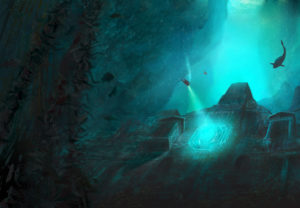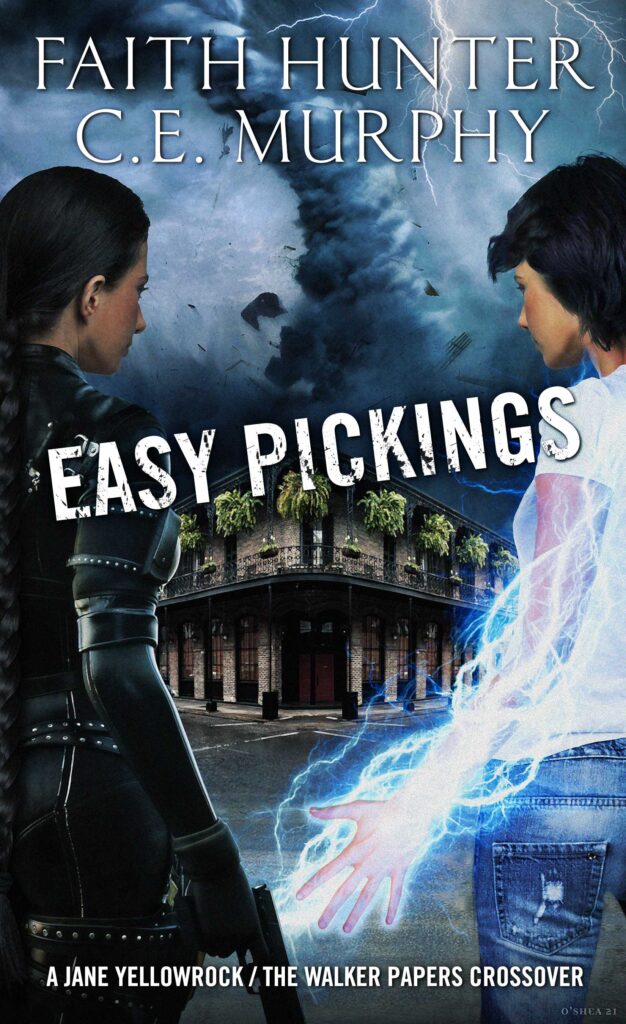Hi All, I hope you’re enjoying the posts by Joshua, a behind the scenes look into the making of an anthology. So many of us find new writers to read, and reconnect with old favorites through anthologies. I’m having fun seeing how it’s done!
Faith
Morning, Everyone,
 This is the fifth of a series of blog posts showing how I create the anthologies for Zombies Need Brains, the small press that I founded in order to produce anthologies. It’s basically a behind-the-scenes look at the process, which will be covered in multiple parts. Obviously, this is only how I produce an anthology and there may be other roads to follow in order to produce one. Keep that in mind.
This is the fifth of a series of blog posts showing how I create the anthologies for Zombies Need Brains, the small press that I founded in order to produce anthologies. It’s basically a behind-the-scenes look at the process, which will be covered in multiple parts. Obviously, this is only how I produce an anthology and there may be other roads to follow in order to produce one. Keep that in mind.
So far, we’ve covered how to come up with a good concept, how to find some great authors for that concept, how to get funding for the project, and what it’s like reading through the slush pile if you have an open call. At this point, you now have all of the stories you intend to put into the anthology. Now comes the heart of your job: editing. It’s not as easy as it sounds.
First, of course, you need to read through all of the stories with an eye towards how you can make the story better. That’s the entire goal. And at the same time, you have to respect the integrity of the author—their style, their voice, the story that they intended to tell. You aren’t trying to rewrite their story to what YOU think it should be; you’re trying to understand the heart of the story that the author wanted to tell and figure out how to improve on what’s written on the paper. It’s rare that a story can’t be improved in some manner. Writers aren’t perfect. In fact, most writers are, in general, unhappy with the story they wrote on some level, because they had this grand vision of the story in their head, and rarely does that grand vision translate completely onto the page. (I can say this because I’ve written so much myself and it never comes out the way I imagined it in my head.) So most writers are open to suggestions for how to improve the story … as long as they recognize that you respect what they wrote in the first place.
And that’s probably the key to editing: everything you say is just a suggestion. You should phrase the revision letter that you send to each author with that in mind. What you try to do as an editor is explain where you feel there are flaws in the story—plot holes, characters acting out of character, infodumps, too much setting, too little setting, not enough worldbuilding, too much worldbuilding, etc. You need to get across to the author why you feel there is a flaw there. If they can see why you have a problem with that section, then they can figure out a way to fix it. (Note: At this stage, you are NOT looking for typos or grammar errors or small stuff that like; you’re looking for the big picture story issues—plot, structure, character, setting, worldbuilding, etc.) Sometimes I’ll offer up a few suggestions as to how I might fix it, but this is mainly an attempt to clarify what I think the issue is in that section. I don’t expect the author to use my suggestions (unless they want to). In fact, I expect them to come up with their own solution, because in the end it’s their story and they usually come up with a better fix anyway. But even then, the decision to change the story in any way is still the author’s. And they may decide that the way it’s currently written is fine and not change anything at all in that section.
Basically, you need to remember that you’re dealing with real people, who are more personally involved in the story than you are. They’ve poured their heart into the story. One of the more delicate interactions you’re going to have during the entire course of creating this anthology will be writing the revision letters for the authors. You need to get across what you think can be improved, but at the same time you can’t be completely and totally blunt about it (unless you’ve worked with the author many times already and have an understanding with them). The majority of the time, I’m dealing with authors I’ve never worked with before. I don’t know how they’d react to a short, blunt assessment of the story. So write the revision letter with the idea that you and the author are collaborators. You both have the same goal: make the story better.
Writers need to keep this in mind as well. The editor (if they’re a good editor) isn’t trying to tear your story apart. They like the story, otherwise it wouldn’t have made it to the editing stage. They simply want to polish it up, take off its sharper edges, make it shine. Yes, it’s hard to step back and try to see what the editor is trying to say, especially after you struggled to get those words down on the page in the first place, but remember that they’re trying to make the story the best it can possibly be. And also remember that, in the end, you don’t have to listen to them. A good editor simply wants you to consider what they’re saying, because they don’t have the personal attachment to the story. They have a little distance, perhaps enough to see things that you haven’t yet. The editor’s suggestions are not attacks.
Once you’ve written the revision letters, the majority of the work passes back onto the authors. You have to give them a little time to absorb your suggestions, to come to terms with them, and then come up with their own solutions. As an editor, mostly you’re just waiting for the “final” stories to come back in. But be prepared to have a few conversations with the authors as well. They may bounce ideas off of you. They may need to discuss your suggestions—either to clarify what you meant or even to disagree with you and try to explain why. Often these conversations lead to a better understanding of what the story wants to be by both the editor and the author. Throughout this process, both sides need to keep in mind that it’s a collaboration.
While the authors are working on their revisions, what the editor should be doing is considering the Table of Contents for the anthology. This is a surprisingly complicated process for most anthologies, so will be the topic of the next post in this blog series.
And now a word from our sponsor:
*****************
Zombies Need Brains is currently running a Kickstarter (at <a href=”https://www.kickstarter.com/projects/543968884/robots-water-and-death-anthologies?token=017aef99″>https://www.kickstarter.com/projects/543968884/robots-water-and-death-anthologies?token=017aef99</a>) to fund THREE new SF&F anthologies and we need your help! We can’t produce anthologies unless we can get the funding to pay the authors, the cover artists, the print and ebook designers, and the printers. That’s where the Kickstarter comes in, and you, THE FANS! We’ve got a ton of stunning anchor authors on board, including NY Times bestselling authors and award winners. And we’ve got a ton of great reward levels, such as tuckerizations, signed copies of books by your favorite authors, and more! Our themes for this current Kickstarter are:
ALL HAIL OUR ROBOT CONQUERORS! “Danger, Will Robinson! Danger!” 50s and 60s television shows and movies were replete with clunky robots with bulbous arms and heads, blinking lights, and a staggered, ponderous walk, like Robby the Robot, GORT, and the Daleks. With a touch of nostalgia and a little tongue-in-cheek humor, this anthology will present invasions of robot conquerors—or well-meaning robot companions—rooted in those 50s and 60s ideals of the robotic vision of the future. Edited by Patricia Bray & Joshua Palmatier.
SUBMERGED: From the very earliest days of SFF, when Jules Verne wrote 20,000 Leagues Under the Sea, the depths of the oceans have always intrigued us. Three quarters of our planet teems with creatures beyond our imagining, and terrors we cannot see. Kraken, Leviathan, Cthulu – what other mysteries and monsters lurk in the currents of the wet and dark? SUBMERGED will explore the depths beneath the surface, whether it be on brand new planets yet to be explored, apocalyptic Earths, or fantasy settings from our wildest dreams. So come join us and explore unfathomable trenches, underwater volcanoes, and abyssal plains. Take the plunge . . . into the Deep End! Edited by S.C. Butler & Joshua Palmatier.
THE DEATH OF ALL THINGS: Death and taxes: the universal themes. Or, nearly. Not all cultures pay taxes, but all pay the reaper. Acknowledging that nobody will ever beat Sir Terry Pratchett for his depiction of Death, we believe there are more stories to tell, exploring the realm and character of death: tragic, humorous, and all the shades in-between. Edited by Laura Anne Gilman & Kat Richardson.
If you’d like to help fund these anthologies, swing on by the Kickstarter at <a href=”https://www.kickstarter.com/projects/543968884/robots-water-and-death-anthologies?token=017aef99″>https://www.kickstarter.com/projects/543968884/robots-water-and-death-anthologies?token=017aef99</a>! And share the Kickstarter with your friends, family, and total strangers! We need more SF&F anthologies!

